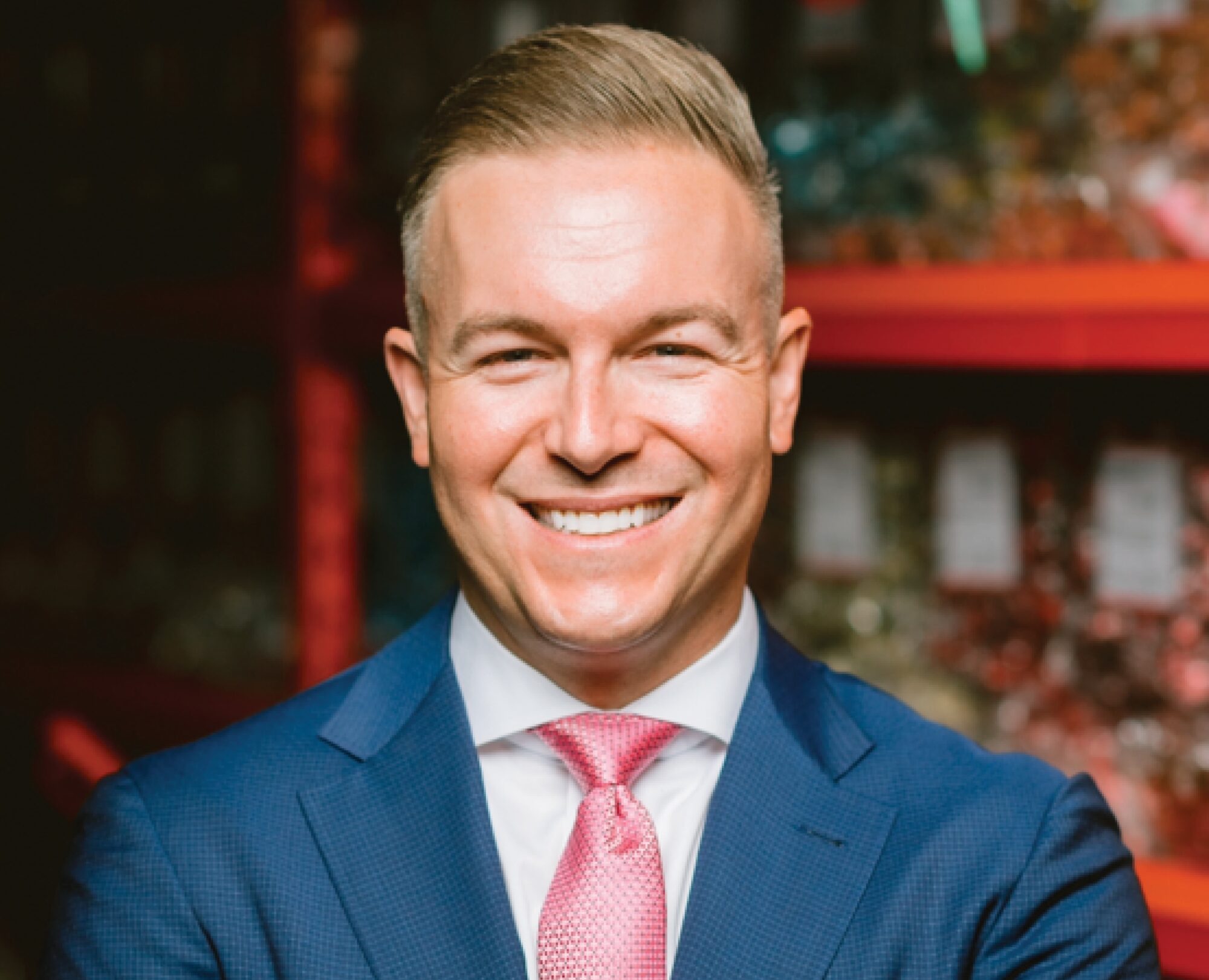Jason Ofield—one of Canada’s next-gen retail leaders—is quick to tell you that studying Business at Niagara College was a big factor in fueling his future career success.
But before he set foot on any campus, Ofield had other aspirations: The talented junior hockey player dreamed of becoming a pro—until the time, at a hockey camp for young prospects, NHL superstar Erik Lindros walked into the room. He remembers the moment well.
“When he sat down, the whole bench moved,” Ofield says. “These guys were so big, so incredibly good. I weighed 150 pounds soaking wet. By the end of the week, I knew the dream was over.”
Ofield set his sights on a career with Bulk Barn Foods Ltd, the grocery chain his grandfather started from a single store more than 40 years ago.
To develop his business skills, Ofield enrolled in Niagara College’s Business, Sales & Marketing program. Nights and weekends he worked at a local Bulk Barn store, learning front-line operations in real time. But in class he soaked up everything from strategic planning to consumer behaviour and new venture development.
“Niagara fosters a very specific culture with students, a culture in which you feel comfortable, that allows you to thrive, feel you’re part of something,” says Ofield, whose diploma now hangs proudly in his office. “I knew instantly this was going to be the start of something big for me.”
After graduating in 2006, Ofield spent the next decade working in every department of the company, analyzing processes, meeting employees, absorbing the business plan, and scrutinizing the logistics in stores where customers scoop their own bulk foods from aisles lined with bins and containers.
By 2015 he led a rebranding project to raise Bulk Barn’s appeal and relevance for a broader scope of demographics in a fast-changing, competitive market.
Whatever file he was working on at any time, Ofield knew he had to go the extra mile.
“I needed to show that I deserved to have my job,” he says. “As someone who was third-generation in the family business, I didn’t want people thinking I was there just because I had the name.”
Ofield’s business and leadership skills grew. In 2018, he was appointed President and CEO. Then within 18 months, the entire retail sector got hammered by a stunning crisis that nobody saw coming.
When COVID-19 swept the world in 2020, lockdowns meant that streets were abruptly empty, stores went dark, and commerce was devastated. Canadian retail sales suffered their biggest collapse ever.
Bulk Barns are self-serve operations where shoppers touch the same scoops to serve themselves. With people terrified about contracting the new virus, that business model couldn’t continue. Suddenly the livelihoods of thousands of employees and 275 stores were in jeopardy.
“That was the toughest part, for myself as a leader and for the Bulk Barn brand,” Ofield says. “We didn’t have a pandemic guidebook to turn to, but closing our doors was not an option. Our stores always operated on the self-serve model. Within two weeks of COVID-19 arriving, we realized that we needed to quickly pivot away from that model and figure out another solution.”
Ofield and his team worked 24/7. Within a week, Bulk Barn had online ordering and curbside service up and running, as well as safe in-store shopping. Staff members would be assigned to accompany shoppers and scoop product into their bags. Everyone stayed masked and distanced to protect customers and staff alike.
There were hiccups: It was costly to operate and employees had to learn on the run. But it worked. It saved Bulk Barn and the jobs that supported thousands of Canadian households.
Ofield also credits Niagara College for inspiring the idea behind what he calls “his proudest moment”: launching a reusable container program that empowers shoppers to help protect the environment just by getting their groceries.
As a millennial concerned about the environment, Ofield established “Bring your own container @Bulkbarn”—an initiative where customers can use their own clean reusable containers.
Initially the concept encountered pushback from store managers and others within the company, who worried about hygiene and logistical challenges. But there was also support for the nature of the effort, and Ofield got to work finding solutions for every potential obstacle that was raised.
In 2017, Bulk Barn rolled out the Canadian grocery industry’s first reusable container program. It slowly gained momentum, especially resonating with younger customers who are more passionate about sustainability.
Today more than a million waste-free transactions take place in Bulk Barn stores across Canada every year.
“We empowered consumers to make a difference,” Ofield says with pride, “and they got onside.
“It takes many people to make it work, but its impact continues to grow, and it’s an important impact.”
This story is part of a series featuring seven distinguished members of Niagara College’s alumni community, who have been nominated for Colleges Ontario’s prestigious 2023 Premier’s Awards.



